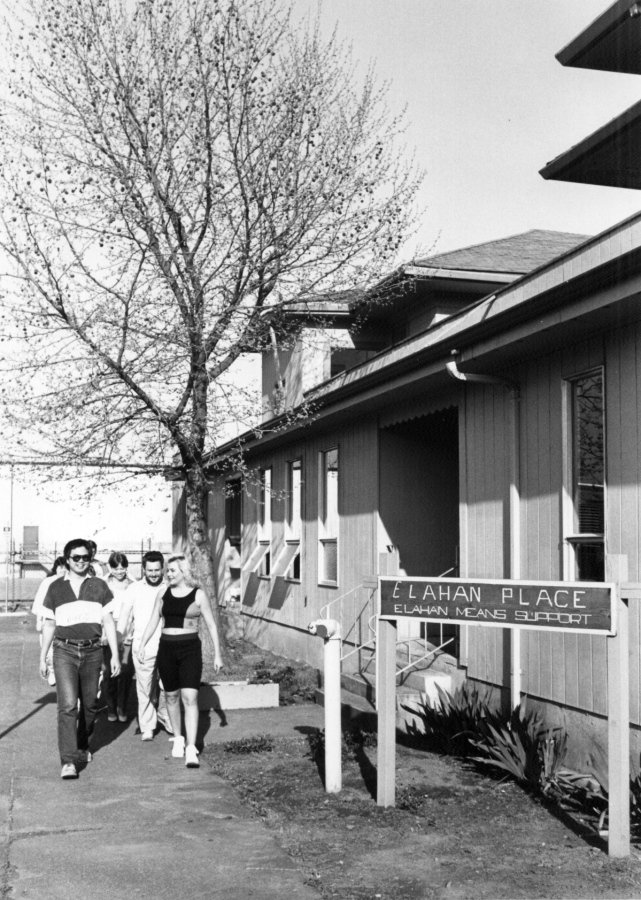The only long-term facility for mental health care in Clark County is closing soon, and people in need of residential treatment here will have nowhere to go.
Elahan Place, a 32-bed long-term rehabilitation and treatment center run by Columbia River Mental Health Services, has stopped accepting patients and will use its building for other services, said spokeswoman Brittini Lasseigne.
The main problem is finding qualified staff, she said, and the building will eventually be used for other yet-to-be-determined uses, such as a homeless shelter or domestic violence facility. But first, the remaining patients must be discharged.
“Four clients already have a discharge plan — we have seven in all — and three will make plans soon. This could take several weeks, until find we somewhere for them,” she said.
Finding another facility will be a challenge, said Kim Schneiderman, executive director of the National Alliance on Mental Illness Southwest Washington.
“There are limited beds across the state, but the goal is to keep people in their own area. It’s important that their support system is accessible to them if they are sent out of the area and it puts added stress on the family,” she said. “It’s heartbreaking.”
The loss of Elahan Place means there is “literally nothing” locally for long-term mental illness care, Schneiderman said.
“The current need is highly critical for the kind of housing Elahan Place offered,” she said. “It was the only long-term residential setting in Clark County, and by taking it out of the picture it leaves us with either the (Hooper Detoxification) Stabilization Center or Rainier Springs treatment center, with stays of only three to five days.”
The shortage of long-term facilities has been an ongoing issue for a long time, she said, and though some adult family facilities will take people dealing with mental health issues, patients would only get maintenance care, but no treatment.
“So there aren’t any Elahans, the only residential treatment facility, and it’s going to be quite the loss,” Schneiderman said.
According to a 2016 study by the U.S. Department of Health and Human services, by 2025, shortages were projected for all areas of mental health professionals, from psychiatrists to school counselors to family therapists, with shortages of 10,000 full-time employees nationwide.
Lasseigne said it’s been a real problem to recruit and retain qualified staff.
“It’s a 24-hour facility, and being able to recruit staff at that level and to retain them for a long period of time is difficult,” she said.
Elahan Place has 34 employees, Lasseigne said, and most should find other positions within Columbia River Mental Health.
“Elahan Place is only one of our locations, and we serve over 5,000 people each year,” she said. “But Elahan Place was our only residential place.”
The company has a main clinic in Vancouver and satellite offices in Battle Ground and Hazel Dell, with counseling services for children and adults.
Salaries are also an issue, Lasseigne said.
“It is a really hard staffing market and there are a lot of competitors in the area that are able to pay higher wages than we do,” she said.
There is some hope on the horizon with plans for a new facility planned near Washington State University Vancouver, but it won’t open until 2024, Schneiderman said.
The new facility, which doesn’t have a name yet, will be three 16-bed facilities. One facility, a hospital, will be built near the college, and the other two will be farmed out to other entities. But it will still have the problem of staffing.
“It’s going to encounter some of the same difficulties with staffing (as Elahan), and will take longer than two years,” she said. “We are just in a world of hurt right now.”
One reason staffing is difficult is that “wonderfully talented” graduates usually have high debt and won’t stay with state or nonprofit agencies after they get their 180 hours of required face-to-face contact to get their license.
“They go somewhere else, generally private practice, that pays more than working for the state,” Schneiderman said. “And we pour the least amount of money into services for people with the highest acuity and illness.”
Staffing at the Unity Center for Behavioral Health in Portland’s Lloyd District is an ongoing challenge, said spokesman Brian Terrett, as is finding a place for people who need a longer stay than what the center offers.
“Those kind of facilities are in short supply and is a statewide issue for both Washington and Oregon,” he said, and to find places for long-term care, social workers typically scour every location in the state.
“Our facility is for seven to 14 days, but we have some in our facility for 90 days or more,” he said, and even the Oregon State Hospital in Salem is not accepting new patients.
The eventual solution, he said, is for across-the-board cooperation.
“Everyone needs to work together,” he said. “Federal, state and private, to identify resources to make sure they are available.”



